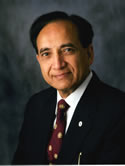Functional status after primary surgical therapy for squamous cell carcinoma of the base of the tongue Journal Article
| Authors: | Friedlander, P.; Caruana, S.; Singh, B.; Shaha, A.; Kraus, D.; Harrison, L.; McKiernan, J.; Solan, J.; Polyak, T.; Shah, J. P. |
| Article Title: | Functional status after primary surgical therapy for squamous cell carcinoma of the base of the tongue |
| Abstract: | Introduction. Quality-of-life analysis is essential in determining the eventual outcome after treatment for head and neck cancer. This is particularly important when functional sequelae of treatment cause significant morbidity. The purpose of this study is to evaluate the functional status of a group of patients who had undergone primary surgical therapy for squamous cell carcinoma of the base of the tongue. Methods. At our institution from 1979 to 1993, we identified 93 patients who had undergone resection of the base of the tongue as primary treatment for squamous cell carcinoma. Patients who required laryngectomy were excluded from this group. Forty-eight survivors were identified, and the questionnaires included the Performance Status Scale for Head and Neck Cancer Patients (PSS) and the Karnofsky Performance Status Scale (KPS). The data were reported numerically, with 0 representing the worst score and 100 representing the best score. Results. Twenty-six patients completed the questionnaires. There were 19 men and 7 women. Their mean survival time was 8.6 years. Two patients had their primary tumors staged as T1, 17 patients had T2, and 7 patients had T3 disease. When evaluating the normalcy of diet, the mean score for the whole group was 73.1 (range, 20-100), the mean score for understandability of speech was 80.8 (range, 50-100), and the mean score for eating in public was 79.8 (range, 0-00). The mean KPS was 90 (range, 60-100). When comparing early (T1 and T2) with advanced (T3) disease, there were no significant differences in PSS and KPS. When comparing younger (<50 years) with older (>50 years) patients, there were no significant differences in PSS scores. Younger patients had a significantly higher KPS than older patients: mean, 97.5 vs 86.4 (p < .02). Conclusions. The long-term functional status for these patients who had undergone resection of a significant portion of the base of their tongue was good. The outcome did not seem to be related to either the stage of the lesion or the age of the patient. More studies are needed to examine the functional outcome of this patient population. © 2002 John Wiley & Sons, Inc. |
| Keywords: | adult; controlled study; treatment outcome; aged; aged, 80 and over; middle aged; survival rate; recovery of function; major clinical study; squamous cell carcinoma; carcinoma, squamous cell; cancer staging; follow-up studies; quality of life; survival time; health status; karnofsky performance status; head and neck cancer; scoring system; daily life activity; tongue neoplasms; tongue carcinoma; humans; human; male; female; priority journal; article |
| Journal Title: | Head & Neck |
| Volume: | 24 |
| Issue: | 2 |
| ISSN: | 1043-3074 |
| Publisher: | John Wiley & Sons, Inc. |
| Date Published: | 2002-02-01 |
| Start Page: | 111 |
| End Page: | 114 |
| Language: | English |
| DOI: | 10.1002/hed.10015 |
| PUBMED: | 11891940 |
| PROVIDER: | scopus |
| DOI/URL: | |
| Notes: | Export Date: 14 November 2014 -- Source: Scopus |
Altmetric
Citation Impact
BMJ Impact Analytics
MSK Authors
Related MSK Work








